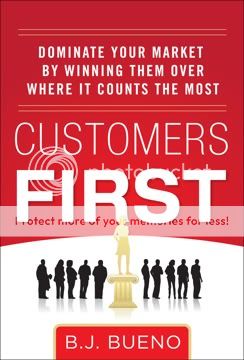 Almost two years ago, Jose Lopez, executive VP of Operations for Nestle, was explaining to the Business Standard why the global foods, health, and nutrition brand, which claims to have a billion customers a day, is so successful. A particular focus of the interview was how Nestle decided to enter a marketplace, as well as their decision to source raw materials and labor in local markets.
Almost two years ago, Jose Lopez, executive VP of Operations for Nestle, was explaining to the Business Standard why the global foods, health, and nutrition brand, which claims to have a billion customers a day, is so successful. A particular focus of the interview was how Nestle decided to enter a marketplace, as well as their decision to source raw materials and labor in local markets.
What is revealed is that Nestle places a high value on knowing their customers, on a number of levels. They’ve identified the universal concerns that cause their best customers to choose Nestle brand products rather than any other—product safety and high nutritional value tops the lists—and the local, market-specific criteria that helps Nestle bond with customers on an individual basis.
“Our factories here (in India) use Indian raw materials produced by Indian farmers to make products that are made to Indian tastes and are sold in the country. That is the way we operate.”
Nestle has been successful with this approach. The growth continues, according to this recent Wall Street Journal article, Nestle Projects Growth from Emerging Markets.
Customers First: How Nestle Reached the Top
Lopez is very forthcoming about the reason for Nestle’s growth. “The first thing that comes to mind is clearly the trust that we have been able to build in our consumers. Second, is our passion for quality, and third, simple and clear business processes.”
Building that level of personal, profitable trust with customers is directly dependent on superior levels of customer knowledge. Before you trust someone, you have to know them, and before that trust can be returning in any meaningful way, they have to know you. Transparent business practices are essential (and if Nestle has had stumbling blocks along the way, it has always been in those areas where they are perceived to be less than transparent in their marketing practices, particularly in the area of infant formula).
In Customers First:Dominate Your Market By Winning Them Over Where It Counts the Most, we examine some of the powerful unconscious psychological forces that motivate customer behavior. There’s a universal need that we all share: we have a profound need to believe that we belong to a group, that we are valued and cared for as a member of society. We want to know—no, scratch that; it’s that we need to know—that we’re cared about.
This is a message that must reach the customer’s ears, heart, and mind. It’s always good to have the leadership spelling it out. In the Business Standard interview, Lopez said, “We want to provide the consumer a good diet. In addition to formulating such products, we want to teach them what’s good for them. Every Nestle product has a nutritional panel or compass on the pack which helps in understanding its nutritional value. The nutritional aspect of the products is what pleases the consumer, but it is also our responsibility to explain to him why it is good for him. The last thing we want is our consumers becoming victims of lifestyle-related diseases.” (emphasis ours)
Nestle’s making use of every touch point to convey their care and concern for customer health. Couple this with the substantial commitment the brand has made to understanding their customers wants and needs, and it becomes easy to see why the Nestle brand is one of the most successful in the world. That’s what happens when you put Customers First!

